
-
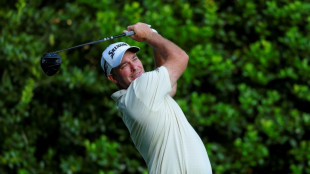 World's top three launch early charge at PGA Championship
World's top three launch early charge at PGA Championship
-
Maresca 'happy' with pressure of Champions League challenge

-
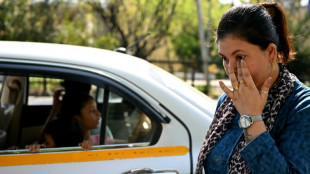 'Miracle': family reunites in Kashmir after fleeing conflict
'Miracle': family reunites in Kashmir after fleeing conflict
-
'Paradigm shift': Germany says to meet Trump's NATO spending target

-
 Struggling steel giant Thyssenkrupp's shares slump after profit hit
Struggling steel giant Thyssenkrupp's shares slump after profit hit
-
French lawmakers divided over PM child abuse hearing
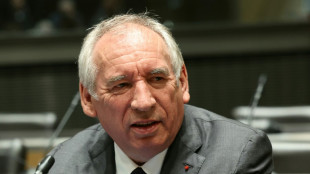
-
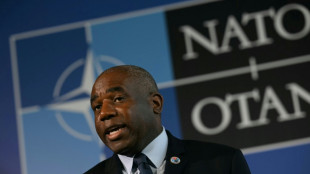 French chauffeur to face trial over alleged theft from UK minister
French chauffeur to face trial over alleged theft from UK minister
-
China's Alibaba posts annual revenue increase despite spending slump
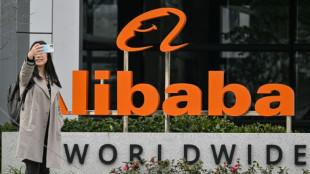
-
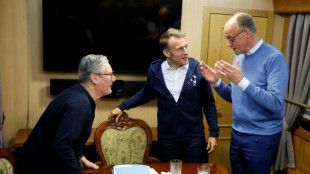 Tracking the disinfo on Macron's 'cocaine use' in Ukraine
Tracking the disinfo on Macron's 'cocaine use' in Ukraine
-
Fraser-Pryce admits family balance hard to maintain

-
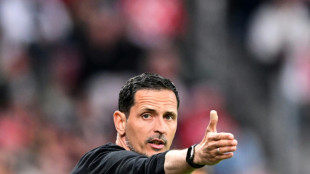 Frankfurt extend coach Toppmoeller's deal until 2028
Frankfurt extend coach Toppmoeller's deal until 2028
-
Germany's Commerzbank staff protest UniCredit takeover threat
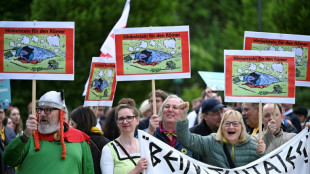
-
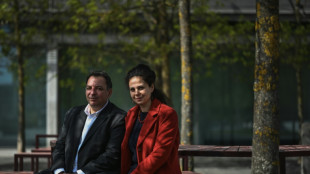 To achieve peace, Syria must punish all crimes: rights lawyer
To achieve peace, Syria must punish all crimes: rights lawyer
-
Gaza air strikes kill 94 as manhunt unfolds in West Bank
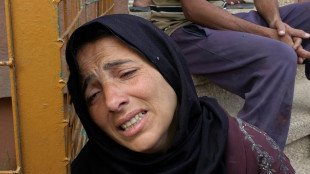
-
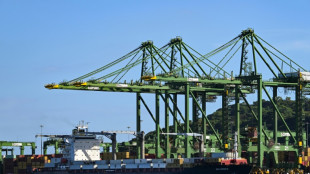 China warns Panama ports deal firms to 'proceed with caution'
China warns Panama ports deal firms to 'proceed with caution'
-
China's Alibaba says annual revenue up six percent year-on-year
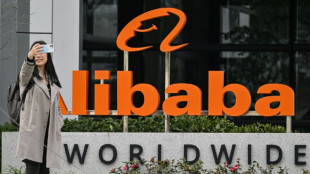
-
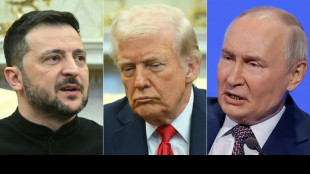 Russia, Ukraine trade insults ahead of Turkey peace talks
Russia, Ukraine trade insults ahead of Turkey peace talks
-
India and Pakistan trade accusations of nuclear arsenal mismanagement
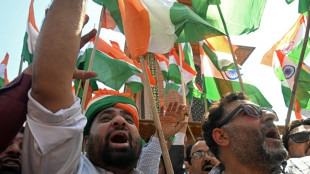
-
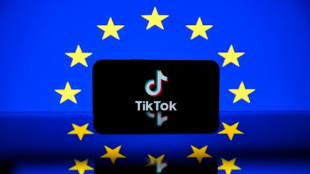 EU accuses TikTok of violating digital rules over ads
EU accuses TikTok of violating digital rules over ads
-
Scotland's Ferguson ends injury nightmare with Bologna cup triumph

-
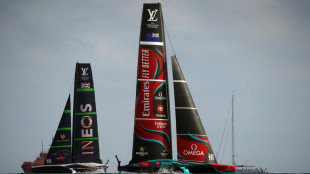 In Italian debut, 2027 America's Cup to be held in Naples
In Italian debut, 2027 America's Cup to be held in Naples
-
Stokes determined to 'dominate' on England return
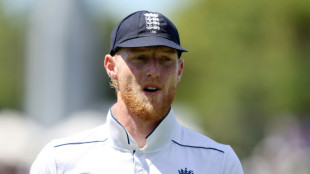
-
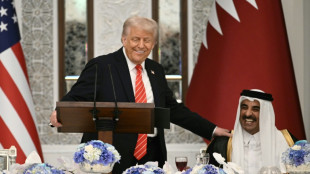 Trump says 'getting close' to deal to avoid Iran military action
Trump says 'getting close' to deal to avoid Iran military action
-
Vladimir Medinsky: Russia's history hawk leading talks with Kyiv
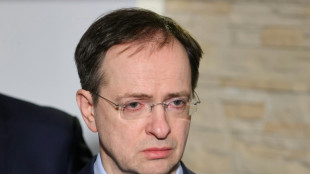
-
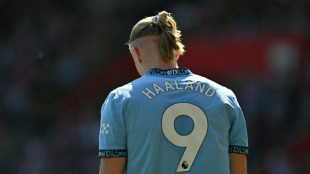 Haaland eyes FA Cup to save face after Man City's 'horrific' season
Haaland eyes FA Cup to save face after Man City's 'horrific' season
-
India says Pakistan nuclear arsenal should be under UN surveillance
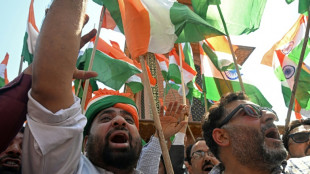
-
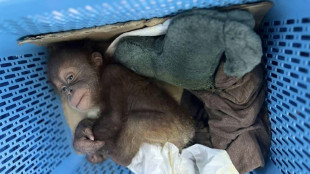 Thai man arrested for smuggling baby orangutans
Thai man arrested for smuggling baby orangutans
-
UK economy grows above forecasts, but tariffs threaten progress
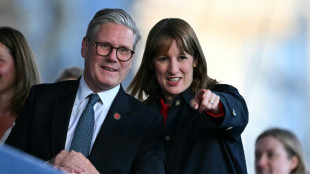
-
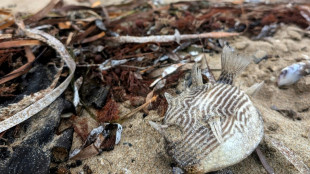 Toxic algae killing marine life off Australian coast
Toxic algae killing marine life off Australian coast
-
Oil prices tumble on hopes for Iran nuclear deal
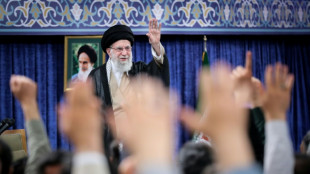
-
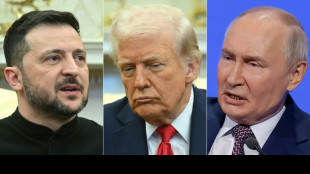 Russian delegation, without Putin, arrives in Istanbul for Ukraine talks
Russian delegation, without Putin, arrives in Istanbul for Ukraine talks
-
China first-quarter emissions fell despite rising power demand
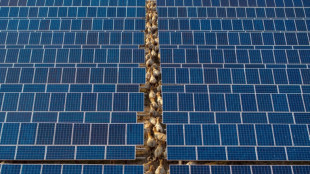
-
 Eurovision voting: when politics and kitsch converge
Eurovision voting: when politics and kitsch converge
-
Eurovision: the 16 acts in second semifinal
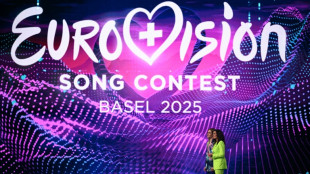
-
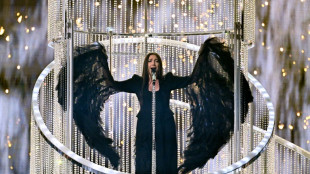 Israel in Eurovision spotlight at second semifinal
Israel in Eurovision spotlight at second semifinal
-
Can cash handouts replace aid? Kenya offers some answers
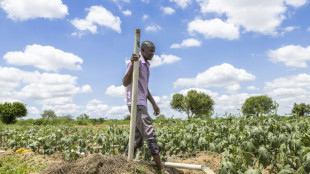
-
 Cuban cigarillo factory overwhelmed by burning demand overseas
Cuban cigarillo factory overwhelmed by burning demand overseas
-
Croatian town pays grandparents for childcare
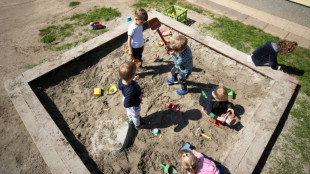
-
 Combs's ex Cassie to face intense defense questioning
Combs's ex Cassie to face intense defense questioning
-
Kinshasa deploys excavators against illegally built homes
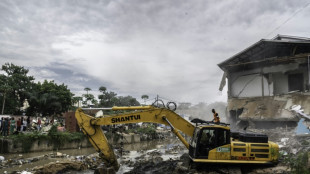
-
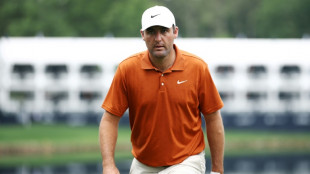 All eyes on world's top trio as PGA Championship set to begin
All eyes on world's top trio as PGA Championship set to begin
-
Ukraine's Loznitsa warns of danger of despots at Cannes
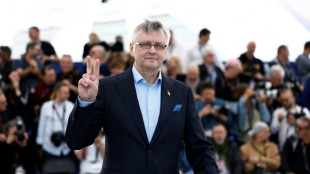
-
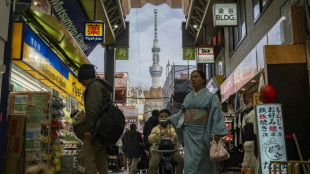 'Unscientific' Japan megaquake rumours spook Hong Kong tourists
'Unscientific' Japan megaquake rumours spook Hong Kong tourists
-
Timberwolves oust Warriors, Celtics down Knicks to stay alive

-
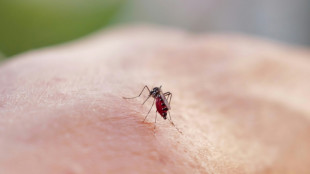 Dengue, chikungunya may soon be endemic in Europe: research
Dengue, chikungunya may soon be endemic in Europe: research
-
End of nuclear in Taiwan fans energy security fears
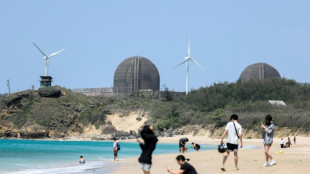
-
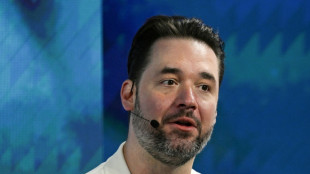 Reddit founder Ohanian buys stake in Chelsea women's team
Reddit founder Ohanian buys stake in Chelsea women's team
-
Sun Yang to swim at China championships after doping ban
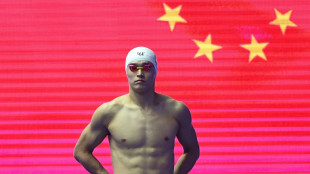
-
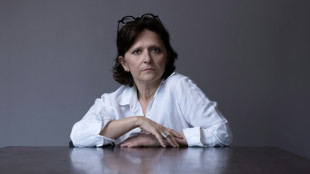 'I thought she'd survive': Story of slain Gaza photojournalist touches Cannes
'I thought she'd survive': Story of slain Gaza photojournalist touches Cannes
-
Pandemic accord, tightened budget on menu at big WHO meet
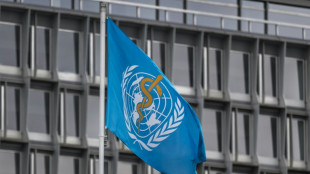
| RBGPF | 100% | 63.81 | $ | |
| CMSD | -0.58% | 22.26 | $ | |
| CMSC | -0.43% | 21.965 | $ | |
| GSK | -0.36% | 36.22 | $ | |
| AZN | -2.25% | 66.23 | $ | |
| BP | -0.66% | 30.36 | $ | |
| BTI | -0.35% | 40.55 | $ | |
| RIO | -0.39% | 62.03 | $ | |
| NGG | -0.15% | 67.43 | $ | |
| SCS | -1.61% | 10.54 | $ | |
| JRI | -0.86% | 12.77 | $ | |
| RYCEF | -1.61% | 10.53 | $ | |
| BCC | -3.27% | 90.74 | $ | |
| RELX | 1.24% | 53.06 | $ | |
| BCE | -3.39% | 21.26 | $ | |
| VOD | -0.22% | 9.04 | $ |

Eurovision voting: when politics and kitsch converge
Groans and giggles typically greet votes at the annual Eurovision Song Contest, loved and mocked for its kitsch music and seemingly partisan outcomes.
But over time, what are the voting patterns, and what external factors help explain them?
Ahead of Saturday's final in Basel, AFP analysed all points distributed among around 2,300 possible pairs -- voting country/receiving country -- since 1957.
Patterns emerged, pointing to factors ranging from geopolitics and cultural affinities to the simple love of a good song.
- Good neighbours -
The various regional blocs in Europe taking part in the contest -- Nordic, ex-Yugoslavia, former USSR, Baltic -- broadly show solidarity with each other, allocating the majority of their points to those in their own bloc.
Norway, Finland, Denmark and Iceland have thus provided more than one-fifth of the points Sweden has received since it first took part in 1958.
But while blocs show clear patterns, discordances suggest other factors are also at play.
Political tensions persist in the Balkans, for example, "but the cultural connections seem to have trumped the political divisions", Dean Vuletic, author of "Postwar Europe and the Eurovision Song Contest" (2019), told AFP.
"I would say that this is because these countries do share a music industry."
On the other hand some countries stand out for the very low number of points exchanged.
Azerbaijan and Armenia, which fought two wars in Karabakh, have exchanged only one point -- in 2009 by Armenia to its neighbour.
- Best buddies -
Voting patterns also show distinct pairings of countries consistently voting higher than average for each other.
Striking examples here include Cyprus and Greece, which since 1981 have given each other between above eight points (when the maximum was 12, up to 2015) and above 18 (when it was 24, since 2016) more than what they get on average.
Romania and Moldova are another reciprocal pair, giving each other since 2005 between above nine and above 12 points more than their average score.
As neighbouring countries, geography helps explain this recurring behaviour, as does language, but also familiarity with performers.
"They intermix a lot," Nicholas Charron from the University of Gothenburg said to AFP.
"There's so much collaboration across borders in terms of songwriting, in terms of choreography, the professionals that worked in these countries."
- Unrequited love -
On the flip side, there are also examples of one-way traffic: a country giving higher-than-average points to another that does not respond in kind.
Cases include France, the country that has given more points to Israel than any other.
It over-votes for Portugal too, as soon as the public has had a say -- its average points allocated jumped from three to nine without reciprocity.
Since 1997 voting at Eurovision is split between juries and the public in each country.
From that date, and up to 2012, Germany showed a notable over-voting for Turkey, averaging 10 points when before it had allocated around 1.4, while no such chumminess was displayed from the Turks.
Labour laws and demographics can help explain this -- in 1961 onwards as part of a guest worker deal, around three-quarters of a million Turks came to Germany to take jobs, creating over time a large diaspora.
The diaspora vote, as soon as the public had a say in voting, would also seem to be at play in the French one-sided votes.
"My guess is there's a lot of Portuguese people living in France that are voting for their own country and there's almost no French people that either care or vote from Portugal," Charron said.
As for France to Israel, "this is indeed explained because France has the largest Jewish community in Europe," said Florent Parmentier at Sciences Po university in Paris.
- Volatile voting -
Flashpoint events can impact the vote in isolated years.
In 2022 for example, the year Russian tanks rolled into Ukraine, there was a huge upswing in votes for Kiev, which won the contest.
And the public vote swung it for them.
From 28 out of 39 countries, the public awarded Ukraine maximum points, while only five juries did. With 439 points out of a possible 468, no country had ever received so many points from the public.
Such a surprise win could be an example of "volatile" factors having an impact, Farid Toubal from the University of Paris Dauphine told AFP.
"The arrival in government of a dictator or a nationalist changes the dynamics with regard to (that country's) partners in Eurovision."
Y.Kobayashi--AMWN